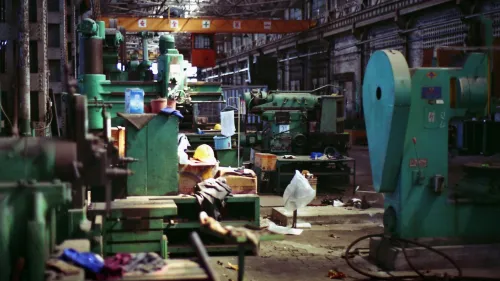
Seven in 10 firms view cybersecurity as a disruptor in construction
Data reliance and mobile workforces escalate cyber threats for construction firms.
Cybersecurity concerns are now at the forefront of the construction industry, with a 2024 GlobalData poll indicating that 73% of firms recognise cybersecurity is either already disrupting their industry or will do so in the next 12 months.
However, the UK government’s Cyber Security Breaches Survey 2024 found that only 20% of construction firms have board members taking responsibility for cybersecurity.
The construction sector has experienced high-profile cyberattacks in recent years, such as the 2020 attacks on UK-based companies BAM, Interserve, and Bouygues.
These attacks had significant operational and reputational impacts on these companies, particularly as they were involved in building the Nightingale Hospitals during the Covid-19 pandemic.
Given the rapidly growing reliance on data and dispersed data from a mobile workforce, construction companies are increasingly vulnerable to cyber-attacks. This includes amongst others ransomware and phishing attacks.
Coupled with growing supply chain risks, this suggests that companies are under continual security pressure.
The construction industry remains a high-volume, low-profit industry, which suggests that managing these challenges raises significant cost management issues.
Supply chain vulnerabilities are a key concern for construction companies, as attackers can exploit the trust between legitimate organisations to gain access to sensitive data.
Cyberattacks can result in financial loss, project delays, intellectual property theft, and reputational damage.
Construction companies must prioritise cybersecurity and implement strategies such as zero-trust access, decentralised cyber policies, secure supply chain management, cybersecurity training, and cyber insurance.
Integrating AI technologies in the construction industry poses new challenges for cybersecurity, as hackers have more attack surface area to exploit.
For all its nuances, AI also offers defensive capabilities that could help companies detect and respond to threats more effectively. Companies like Maire Tecnimont and Lendlease have already implemented AI solutions to enhance their cybersecurity posture.
Regulatory bodies are also increasing their efforts to hold companies accountable for cybersecurity breaches. The European Commission and US SEC have introduced regulations to improve cybersecurity standards and require public disclosure of cybersecurity incidents. Under this setup, companies with poor cybersecurity practices may face regulatory fines and reputational damage.
Construction must likewise prioritize cybersecurity, appoint CISOs to company boards, and comply with government regulations to mitigate the risks of cyberattacks.
Building a proactive and resilient cybersecurity strategy is essential for protecting sensitive data, maintaining operational integrity, and safeguarding the reputation of construction companies in an increasingly digital landscape.















